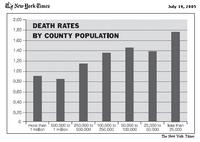Special Summit Set On Charter for IraqViews Outside the Committee Are Sought
BAGHDAD, July 26 -- Drafters of a new constitution have summoned leaders of Iraqi religious, ethnic and political blocs to an emergency national summit this week in an attempt to hash out the toughest, deadlocking issues in reshaping the country, U.S. and Iraqi officials said Tuesday.
U.S. officials in Washington said the gathering will take place Thursday and Friday, if enough leaders -- particularly members of Iraq's Sunni Arab minority -- agree.
Humam Hamoudi, chairman of the constitution-writing committee, has called for the forum, and U.S. officials said the aim is to bring in leaders from outside the committee, particularly Sunni Arabs. The U.S. officials spoke on condition of anonymity because of the sensitivity of the talks.
NOTE: Additional news from Fox News (via AP), "Kurds Won't Back Down From Federalism,"

